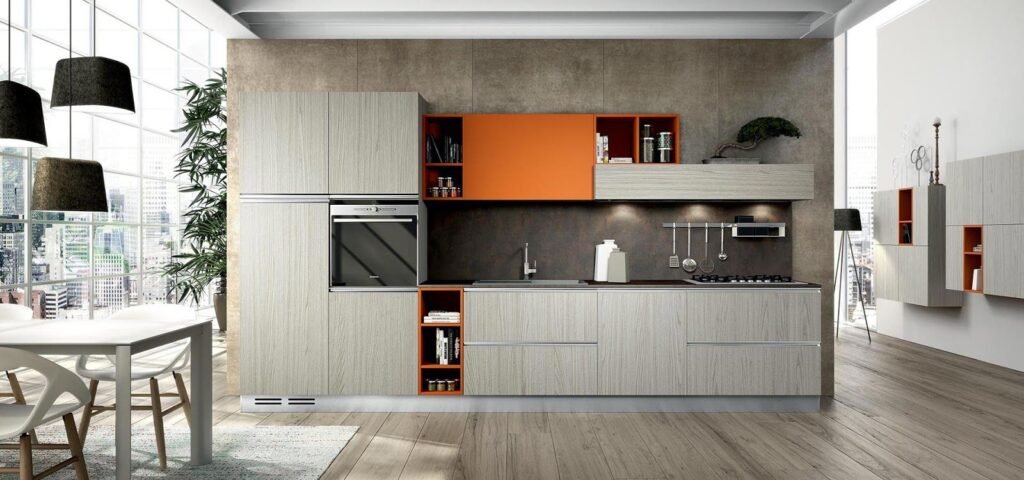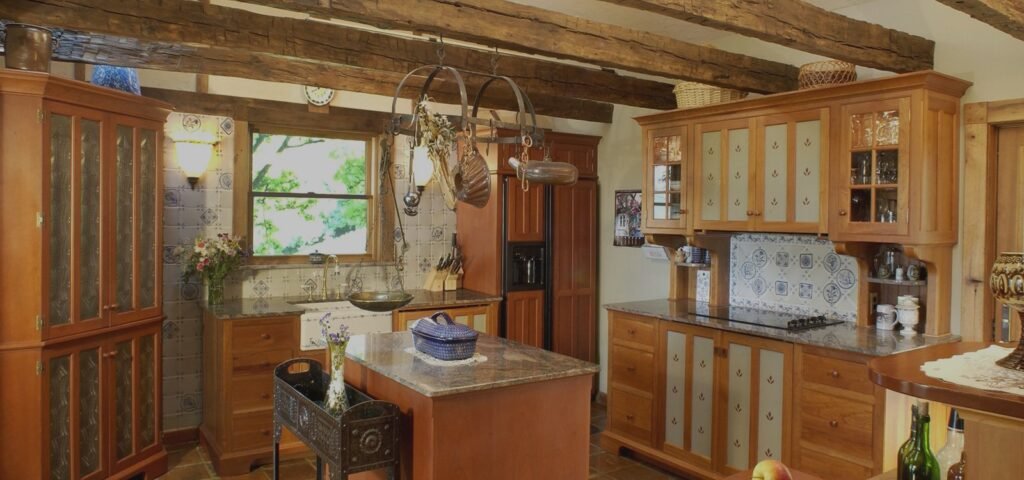Were you aware that kitchen cabinets normally cost almost 40 percent of a complete remodelling budget for a kitchen? Taking care of cabinets does not just involve their appearances and how pretty they look, but the actions you take to maintain one of the biggest investments in your home. Cabinets not only exist to hold things but they form the workhorse of your kitchen, its usability and design. Your cabinets can serve decades and not their lustre or force under all the appropriate approaches.
Understanding the Material of Your Cabinets
Before you make any long-term maintenance decisions, you must first see what your cabinets are composed of. Solid wood, MDF (medium-density fiberboard), plywood and laminate have different reactions to environmental stress. Two such examples include solid wood which is classy and hardy but vulnerable to humidity, and laminate, which is easily resistant to stains but is liable to peeling at the edges in cases of neglect.
- Care should be taken to polish solid wood cabinets with oil to keep them shiny.
- Laminate cabinets can be cleaned with a mild shoe cloth and water, not abrasive scrubbers, since this will dull the finish.
- Cabinets with paintings require additional care, because sometimes it is the harsh chemicals that strip away the protective layer.
Daily Cleaning Habits That Make a Difference
Grease, spills and steam accumulates over time, resulting in discoloring and damage. Rather than using special cleaning to deep clean, now and then, it is best to maintain a record of light daily upkeep.
- Blot off the spill immediately using a microfibre cloth. Or liquids like coffee, tomato sauce, or oil will drip up.
- Weekly dusting on corners with crown molding and handles.
- Wash with light soap solutions- do not use bleach or any product based on ammonia, as that takes out finishes.
Consider your cabinets as your skin: it is better to have gentle treatment all the time than rough treatment.

Protecting Cabinets from Moisture and Heat
Kitchens are wet, and there is constant steam emitted by dishwashers, ovens, and stovetops. One of the largest threats to your cabinetry is excess moisture, which causes warping, swelling, or cracking.
- Having the range hood on during cooking, even when boiling water, is good.
- Do not have a damp dish towel hanging over cabinet doors.
- Install mats near your sinks to avoid unobserved leakages.
- When loading the dishwasher always leave the door ajar after each load.
To further increase safety, solid-wood cabinets ought to be sprayed using seasonal conditioning oils to help with their cracking in winters where the weather is dry.
Hardware and Hinges: The Unsung Heroes
Although doors of cabinets are in the spotlight, hinges, handles, and drawer glides are vital to functionality. Neglected, old hardware components can strain the cabinet frame.
- Every 6 or so months, oil your hinges with silicone sprays.
- Install and tighten screws in the most-used cabinets.
- Replacement of corroded hardware should occur as quickly as possible, so that further stress on the cabinet does not occur.
Seasonal Deep Cleaning and Polishing
Cabinets are better serviced by deep cleaning rather than day-to-day cleaning. Clean the inside of shelves, the drawers, and exterior finishes twice a year.
- Clear all the contents and clean crumbs/ dust away.
- Use warm water with a slight dish detergent to wipe inside.
- Wipe and dry before refilling to avoid stagnant moisture.
- On wooden furniture, a good quality furniture polisher or the beeswaxing polish may be used to restore lustre.
Not only does this increase the life of your cabinet, but it is also a good opportunity to reorganize your kitchen storage.
Preventing Scratches and Surface Damage
For cabinets that are badly damaged, minuscule abrasions build up with time. It is always easier to prevent these as opposed to fixing them afterwards.
- Do not bang doors and drawers; try to install soft-close hinges when feasible.
- Apply felt pads to the inside door junction to the frames.
- Store cutting objects off-surface– never cut on top of the cabinets.
Wipe with non-abrasive cloths; steel wool or coarse sponges may have a permanent scratching effect on the finish.

Ventilation and Air Quality
Both moisture, airborne particles, and odors are absorbed by cabinets. It is necessary to have good ventilation and air circulation in the rooms.
- When cooking high levels of spice or frying, keep windows open.
- Do not smoke indoors since getting nicotine stains off is hard.
- Keeping the air clean not only helps with cabinets but also lifts the general air quality.
Keeping the air clean not only helps with cabinets but also lifts the general air quality.
When to Refinish or Reface
Nowadays, to improve durability, more homeowners opt to refinish or reface their cabinets, rather than fully replacing them.
- Refinishing entails sanding and even repainting.
- Refacing is the replacement of the doors and the fronts of the drawers while keeping the cabinet boxes.
They are affordable remedies, without sacrificing structural integrity, but without washing away style. Such changes after every 10- 15 years or so would go a long way in making sure the longevity of your kitchen cabinetry is achieved.
Eco-Friendly Maintenance Options
Modern houses are becoming more concerned with sustainability. A large number of homeowners currently resort to some of the most environmentally responsible approaches to cabinet care to cut their carbon footprint.
- Select plant-based cleaners that contain no harsh chemicals.
- Use soft cotton rags rather than disposable ones.
- Use alternative polishes, such as natural oils, such as olive or coconut oil.
Long-Term Care Is About Value Preservation
Through regular maintenance plans, homeowners will be able to avoid a repair or replacement cost worth thousands of dollars. You will have a place where your cabinets will last longer with daily cleaning, and a few maintenance and preventive measures such as occasional deep cleaning. Carefully maintained, they should stand as a focal point to your kitchen through dozens of years, with sturdiness. To get professional advice on selecting and maintaining the cabinets, refer to the professionals of Atlanta Wholesale Kitchen.
